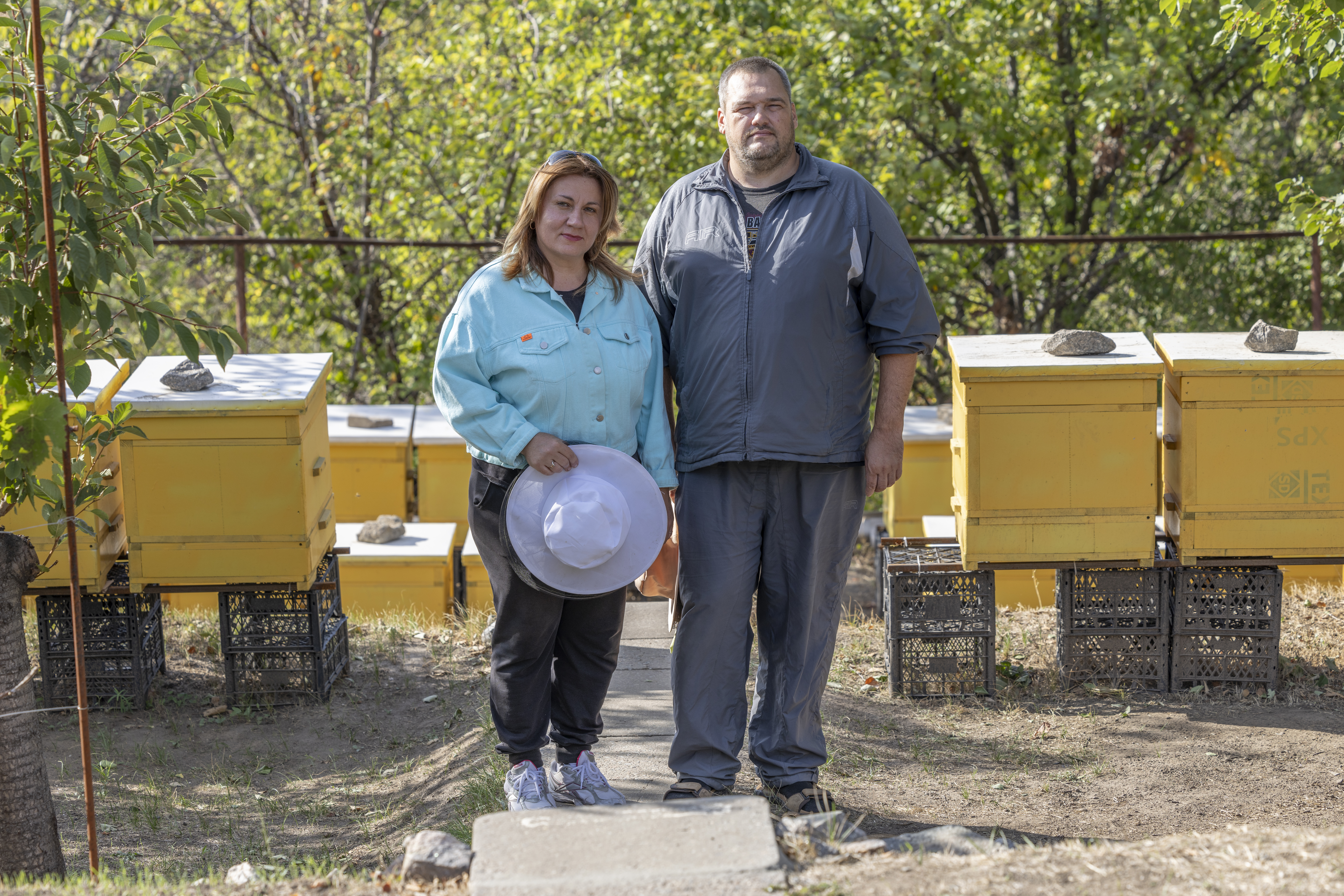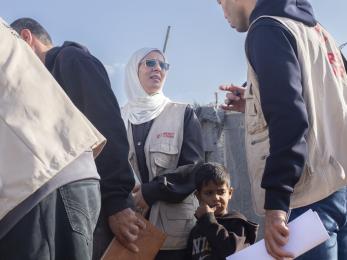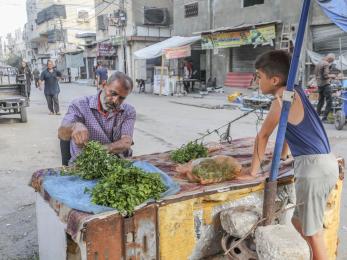Repaired reservoir delivers clean water to 550,000 people
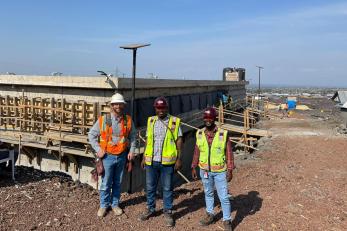
In May 2021, the center of Goma was narrowly spared as lava flows stopped short of engulfing the heart of the city during the Mt. Nyiragongo eruption in the Democratic Republic of Congo (DRC). Nestled in the eastern region near the border of Rwanda, the residents of Goma received no warning. Thousands of people fled their homes. More than 300 earthquakes shook the city in the days that followed.
In the Bushara village near Goma, there was significant damage to infrastructure. The lava from the eruption reached the water distribution network and destroyed part of the 1.3-million-gallon Bushara Reservoir. The reservoir was built by Mercy Corps to provide access to safe, clean water, saving local children and families from deadly waterborne diseases. But the Mt. Nyiragongo eruption left more than 550,000 people without this essential water supply.
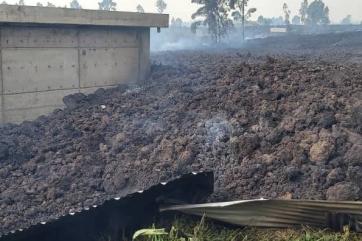
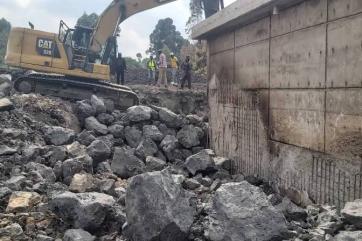
When displaced families returned to Goma weeks later, more than 4,500 households found their homes had been damaged in the wake of the dual lava streams. The catastrophic eruption upended thousands of lives overnight, with thousands of residents losing their homes and livelihoods.
In the months following the eruption, Mercy Corps’ emergency response team worked to avert a health crisis by delivering clean drinking water on tanker trucks to more than 31,000 people. During this time, a team of civil and structural engineers from Mercy Corps and an engineering firm assessed the damage to the Bushara Reservoir. “The cut of the water supply was going to have more impact than one could imagine,” said Simeon Kakule, civil engineer for Mercy Corps in DRC. “There was smoke due to burning materials and a strong heat came from the volcanic rock which was still very hot. Vehicles, homes, and trees were burning everywhere.”
“Surprisingly, the lava was more than six meters deep at extremely high temperatures but the structure was still standing,” said Simeon. Although a larger tank had protected two smaller tanks against the lava, much of the equipment—like 2,275 feet on the main water supply line, and 2,275 feet of the principal distribution line—had been destroyed, making water delivery impossible.
Despite the unique challenges the Mercy Corps team faced during the repair—like delays due to the scorching heat from the lava and difficulty securing contractors to work in the area—the reservoir was fully operational by September 2022.
Reliable access to clean water within a short walking distance from home is especially important for women and children, who are primarily responsible for water collection. Restoring water points in local neighborhoods greatly reduces women’s time burden and risks of gender-based violence that can occur when traveling long distances to collect water. The reservoir also reduces the risk of water-borne diseases, like diarrhea—the second most common cause of death for children under five in DRC.
“The need for clean water impacts all aspects of life,” said Tomas Mosquera, former Chief of Party for Mercy Corps in DRC. “The reinforcements made to the 5000m³ reservoir in the Bushara district will ensure the availability of water for the people of Goma in the future, while the structure of the reservoir is now prepared to better withstand any future volcanic eruption.”
Access to clean and safe water is a human right. As part of our emergency response, Mercy Corps works with local organizations and government to build more sustainable, long-term solutions to improve access to water, sanitation, and conservation. When communities have access to water, people are better able to meet their everyday needs and take on what’s next.

